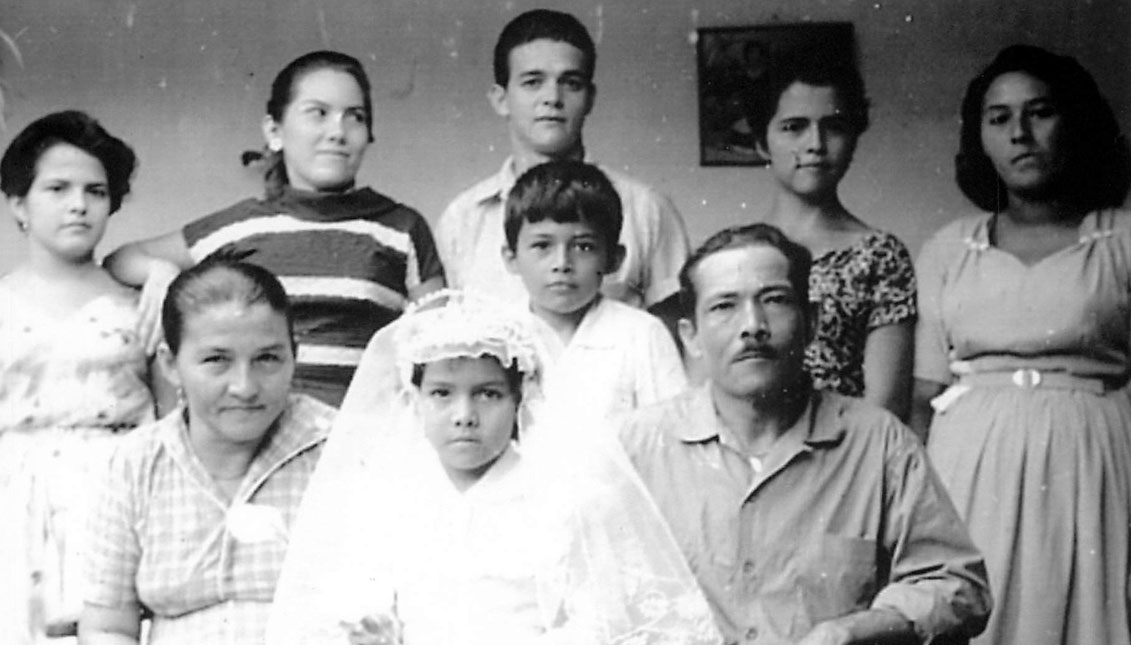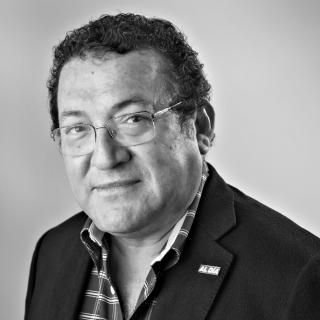
Remembering My Mother
My Mother, that colossal Latina who gave birth and education to 10 children —yours truly included— was a strong matriarch both tender and stern that installed…
Women make men.
Particularly when these women happen to be our mothers.
My case may not different from all of you, idle reader, who may be remembering this quiet Sunday your courageous mothers, as a result of this 100-old Mother's Day global celebration, imagined and done first here, in old Philadelphia, the cradle of our republic.
My moother was a very special woman.
She, like any other, would literally lay down her life for any or all of her offspring —10 of them— down to the last one, La Raspa (poor little scrap), the youngest, the very last one in the clan: yours truly.
Yes, that would be me, born at the end of her long line of consecutive pregnancies (14 in total) this brave South American woman was capable of enduring, before collapsing to cancer in her mid-60s, but not before building a large family of 10 children with her husband, Don Pedro Guaracao, the patriarch.
She was already in her 40s when I jumped off into the world stage, thanks to her and El Jefe of the Family, Don Pedro, another sturdy creature of ample shoulders and callous hands, both born and raised as poor campesinos in the most northern tail of the Andes Mountains, where the Caribbean sea finally meets South America, in today's country of Colombia.
I remember a woman in her 50s, when I was 5 or so, who would look after me all the time, caring and loving in her mother's role, as much as she probably did with her each and every one of her other nine children, born between the oldest and me, the youngest, over the span of over 20 years.
But I was the consentido— the spoiled youngest, according to the negative propaganda from my likely envious older siblings.
But indeed no less disciplined by my mother’s heavy hand that knew how to tenderly caress her son’s head, but also turn to a quick spanking on some other parts of the body, with her knuckles turned on you, when it was absolutely necessary.
I vaguely remember only one time she did impart that kind of “tough love” to me.
I would like to remember I felt full shame for letting her down, at the same time feeling so embarrassed by her unexpected decision to transform her gentle admonitions into physical punishment.
Only one time, sufficient for me to straighten myself up and internally swear I'd never dare again to disappoint her. I was probably only 10 that was the end of it.
RELATED CONTENT
The most vivid memory about my mother was when she bravely confronted cancer and final death, when the fatal illness finally slowed down her still robust body which had endured 14 pregnancies, never complaining of any disease, up to her 60’s, when a small but deadly cancer lump erupted from her fatigued frame.
I can’t help but remember the varicose and probably sore veins my eyes of a child used to see with curiosity on the lower part of her legs, later explained to me by her as the result of the long hours standing under the sun, working the land next to my father, or in her home delivering the Guaracao's lineage of 2 brothers and 7 sisters and tending to their raising and education.
We were a total of 10 that today are the foundation of a robust family tree of almost 40 grand and great-grandchildren who survive her, or are today her proud offshoots of that family tree extending all the way here to North America.
When cancer came to undo her, she never complained— her most common attitude all her life.
"Bendito Sea Dios," (God Almighty be blessed) was her quick verbal reaction whenever something went very wrong— perhaps her wise way of remaining calm, under control, and silent the expletives.
She took the pain and her fate with humility, down to the final days and hours of her life, under extreme medicines made available to ameliorate the physical suffering of the terrible disease that was at the end her kind of martyrdom, very tangible to me through the quiet groaning of her final hours I could overhear through the walls of the adjacent bedroom where I used to stay in our family home in Colombia.
A deeply Christian woman she was, I can picture her today, Día de la Madre, only as the "victorious (one) over the grave," as Saint Paul would put it, with an encouraging smile, no different from those many moments when she gave me so many times, in her casual style, one her favorite pieces of advice:
“Son, there is always a solution for every problem in life— except death.” ("Para todo hay solución, mijo, excepto para la muerte").
She was Rogelia Calderón de Guaracao, my beloved mother, the super-woman who installed Teflon in our frame and, in my case, made me the better man I am still trying to become today.











LEAVE A COMMENT: